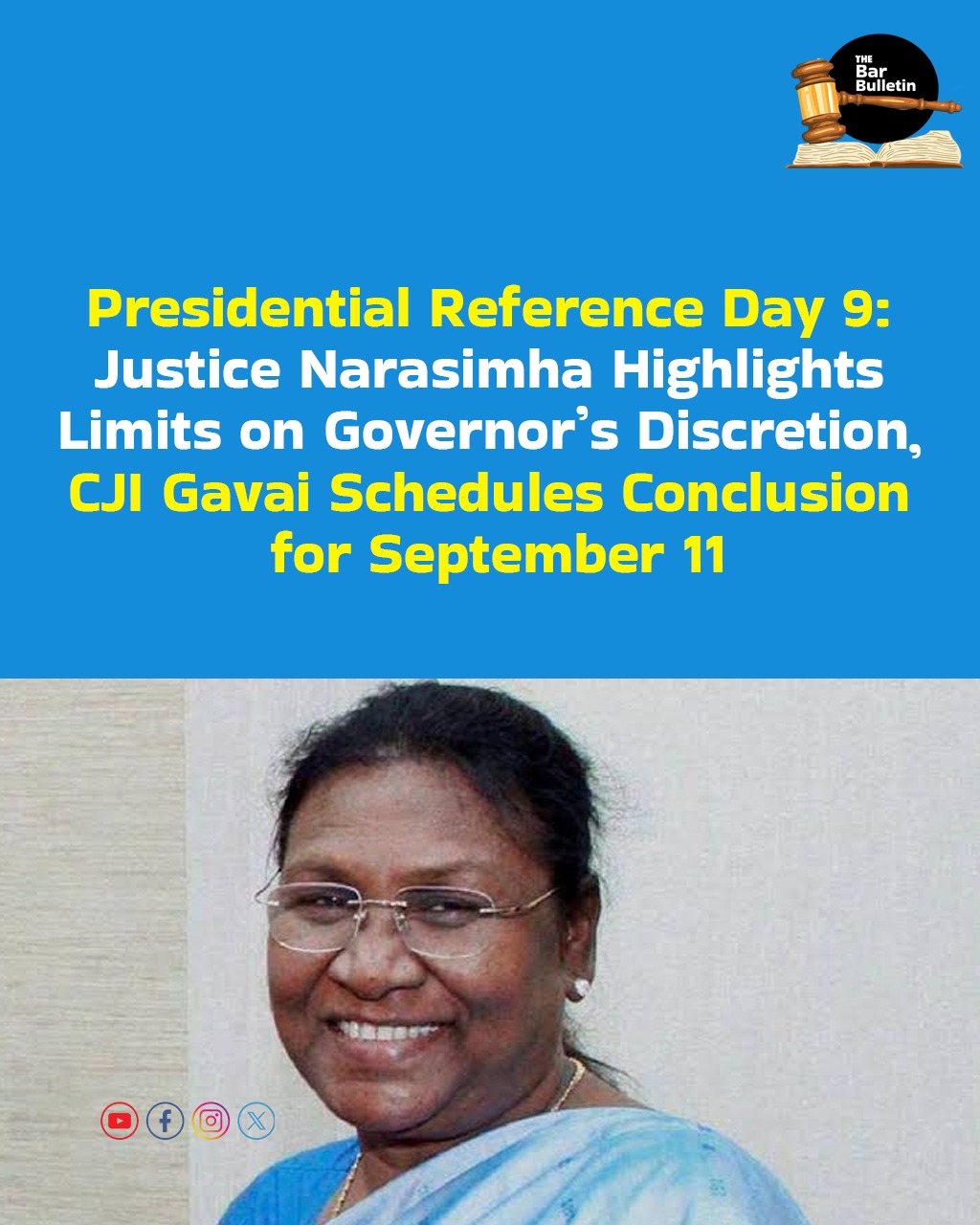The Supreme Court on September 10, 2025, continued hearing the Presidential Reference concerning the Governor’s powers under Article 200. Senior Advocate Niranjan Reddy submitted that the Constitution leaves the Governor with almost no discretion in matters of assent. He highlighted that the second proviso to Article 200, which mandates the Governor to reserve any Bill affecting the powers of the High Court for Presidential consideration, itself proves that in all other cases the Governor is bound by the aid and advice of the Council of Ministers. Senior Advocate P. Wilson reinforced this position by stressing that Articles 200 and 201 are part of the legislative procedure and not an executive power. He said assent is procedural and therefore subject to judicial review, reminding the Court that state autonomy and parliamentary democracy require that elected governments be able to govern effectively and that the will of the legislature must not be frustrated by gubernatorial inaction.
Senior advocate Gopal Sankaranarayanan, referred to Article 145(4) to note that in a Presidential Reference, the Supreme Court gives a report on the questions raised by the President. The opinion of a Presidential Reference Bench to the President is the same as the opinion of a law officer to the government, he says.
Senior Advocate Avani Bansal argued for recognition of a “right to time” as part of constitutional governance, submitting that indefinite inaction by Governors or the President on Bills amounts to arbitrariness and violates Article 14. Citizens, she said, cannot be left voiceless when elected legislatures pass laws that are stalled for years. She urged the Court to hold that the constitutional phrase “as soon as possible” must mean within a fair and reasonable timeframe, so that legislative processes remain effective and meaningful.
For the Union, Solicitor General Tushar Mehta maintained that treating the Governor as a mere signatory would go against the spirit of the Constitution. He argued that the expression “withhold” used in Article 200 was borrowed from Constituent Assembly practice, where if a proposal was not accepted it was said to “fall through,” and this cannot be reduced to a mechanical act. According to him, the Governor’s oath to preserve, protect, and defend the Constitution carries implied discretion, and constitutional interpretation must be purposive and living, allowing collaboration between Governors and State governments rather than stripping the office of any role. While conceding that indefinite delay is impermissible, he maintained that limited discretion is necessary to maintain balance. Justice P. Narasimha questioned whether the principles of democracy and federalism require that once a Bill is passed, the Governor must respect the legislative will and not indefinitely stall it, pointing out that Articles 200 and 201 read together suggest limits on discretion. The CJI BR Gavai concluded the day by noting that arguments would be completed the following afternoon on 11th September.



